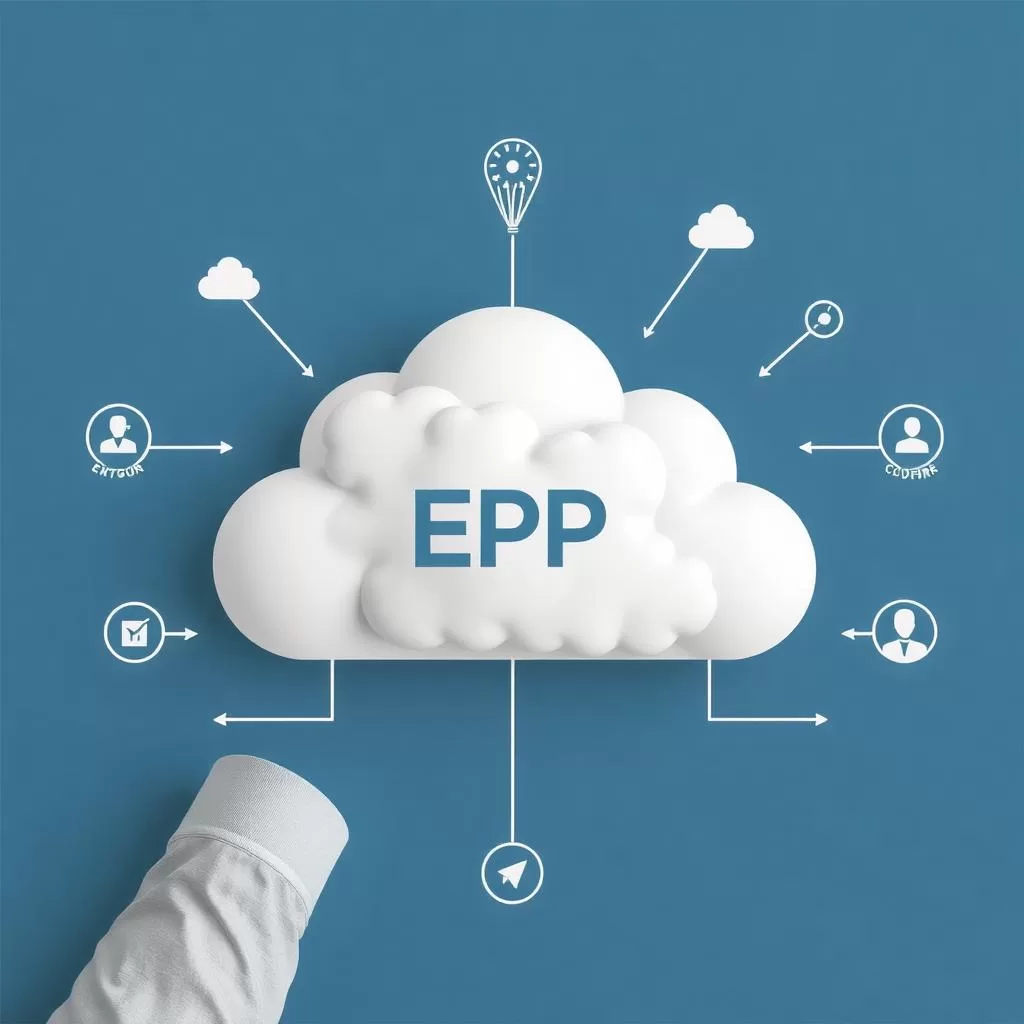The Growth of ERP in Africa: Key Trends and Opportunities
Introduction
Enterprise Resource Planning (ERP) is transforming businesses across Africa by integrating finance, supply chain, HR, and operations into a single digital platform. Companies are shifting from manual processes to cloud-based ERP systems, improving efficiency and competitiveness. We can therefore look at key trends that fuel the growth of ERP in Africa.
But what are the key ERP trends in Africa? 🤔
This article delves into the rapid growth of ERP systems in Africa, focusing on key trends and exciting opportunities. Firstly, we explore the rise of cloud-based ERP solutions, which have revolutionized business operations by offering scalable, cost-effective, and accessible tools for companies across the continent. Furthermore, industry-specific ERP applications are becoming increasingly popular, allowing businesses in sectors like retail, healthcare, and manufacturing to streamline their processes and drive efficiency.
However, despite these advancements, the adoption of ERP systems in Africa still faces several challenges. These include issues such as limited digital infrastructure, lack of awareness, and the high initial investment required for implementation. Nevertheless, these challenges also present significant opportunities for businesses and startups to fill gaps in the market, providing tailored ERP solutions and services to meet the growing demand.
Ultimately, the integration of ERP systems in Africa presents immense potential for businesses to enhance operational efficiency, improve decision-making, and achieve sustainable growth. With the right strategies and support, companies can overcome adoption barriers and fully capitalize on the benefits of ERP.
Let’s dive in! 🔍
1️⃣ Cloud-Based ERP: The Future of Business Operations
African businesses are increasingly adopting cloud-based ERP instead of on-premise systems due to lower costs and scalability.
🔹 Why Cloud ERP is Growing in Africa
Cloud-based ERP solutions offer several advantages for businesses. First, they come with lower upfront costs, eliminating the need for expensive IT infrastructure. As a result, businesses can focus more on their core operations without worrying about high initial investments. Furthermore, these systems are scalable, allowing companies to grow without needing significant additional resources. This flexibility makes it easier for businesses to expand at their own pace. Additionally, cloud-based ERP provides remote access, enabling employees to work from anywhere, which enhances overall efficiency and collaboration. With these benefits, cloud-based ERP solutions are an ideal choice for businesses looking to streamline operations and remain competitive.
💡 For example, SAP and Oracle Cloud ERP are widely used in African banking and manufacturing industries.
2️⃣ Industry-Specific ERP Solutions in Africa 🏭
Instead of generic ERP software, African businesses are adopting industry-specific ERP solutions tailored to their needs.
🔹 Popular Industry-Specific ERP Systems
Agriculture ERP system helps farmers manage their supply chains and optimize production, ensuring better crop management and resource allocation. Similarly, Retail ERP solutions streamline inventory and sales management, making it easier for shops to track products, manage orders, and analyze sales data in real-time.
In the healthcare sector, a Healthcare ERP system enhances patient records management, improves hospital operations, and supports healthcare providers in delivering better care. On the other hand, a Manufacturing ERP system focuses on optimizing production planning and logistics, ensuring that manufacturers can efficiently manage their production lines, track raw materials, and reduce waste.
By providing industry-specific functionalities, ERP systems help businesses in these sectors enhance efficiency, reduce costs, and stay competitive in their respective fields.
💡 For example, FarmERP is an ERP platform designed for African agriculture, helping farmers track crop production and predict market trends.
3️⃣ Mobile ERP: Driving Digital Transformation 📱
Mobile ERP solutions are revolutionizing business operations in Africa, especially in rural areas where computers are less accessible.
🔹 Benefits of Mobile ERP
Mobile ERP solutions offer significant advantages, especially for businesses with field workers or teams on the go. Field workers can access data anywhere, making it perfect for industries like logistics, sales, and agriculture. Whether they’re on a construction site, delivering goods, or inspecting crops, they can easily access real-time information and update records instantly.
Moreover, mobile ERP enhances decision-making by providing managers with real-time insights right on their phones. This quick access to data allows for faster, more informed decisions, helping to optimize operations and respond to issues immediately.
Additionally, faster transactions are enabled through mobile apps, reducing delays in approvals, reporting, and data entry. This leads to smoother business processes, faster customer service, and overall improved operational efficiency.
💡 For example, Odoo ERP offers a mobile version that enables African businesses to track inventory, sales, and expenses on the go.
4️⃣ ERP and Financial Inclusion: Banking & FinTech Integration 💳
African banks and FinTech startups are integrating ERP solutions to manage transactions, compliance, and customer data more efficiently.
🔹 How the growth of ERP Helps African Financial Institutions
Mobile ERP solutions bring notable benefits to businesses with field teams. Field workers can access data from anywhere, which is especially valuable in industries like logistics, sales, and agriculture. Whether on a construction site, delivering products, or inspecting crops, workers can access real-time information and immediately update records.
Furthermore, mobile ERP empowers managers with real-time insights on their phones, improving decision-making. This rapid access to critical data ensures decisions are informed and swift, driving operational efficiency and quick problem-solving.
Additionally, mobile apps enable faster transactions, reducing delays in approvals, reporting, and data entry. This streamlines processes, enhances customer service, and boosts overall business performance, creating a more agile and responsive operation.
💡 For example, Banking ERP software like Temenos helps African banks reduce operational costs while improving customer service.
5️⃣ Challenges of ERP Adoption in Africa ⚠️
Despite its benefits, ERP adoption in Africa faces several barriers that slow down growth.
🔹 Key Challenges
Despite the numerous benefits, there are some challenges that businesses may face when adopting ERP systems:
❌ High Implementation Costs – ERP systems can be costly, especially for small businesses with limited budgets. The upfront investment in software, hardware, and training may be prohibitive.
❌ Limited Technical Skills – A shortage of skilled professionals who can manage and maintain ERP systems can create difficulties in ensuring smooth implementation and operation.
❌ Internet Connectivity Issues – Cloud-based ERP systems rely on reliable internet access. In regions with unstable or limited connectivity, this can lead to disruptions in system performance and accessibility.
While these challenges may pose obstacles, understanding them allows businesses to plan effectively and make informed decisions when considering ERP solutions.
💡 Solution: More affordable, localized ERP solutions and government investments in digital infrastructure can drive adoption.
6️⃣ The Future of ERP in Africa: What’s Next? 🚀
The ERP market in Africa is expected to grow rapidly, driven by AI, automation, and blockchain integration.
🔹 Emerging ERP Trends in Africa
As ERP technology continues to evolve, businesses can leverage new, cutting-edge features to enhance their operations:
✅ AI-Powered ERP – Artificial intelligence automates data analysis and decision-making. It helps businesses identify trends, forecast demands, and make informed decisions without human intervention, increasing efficiency and accuracy.
✅ Blockchain-Based ERP – Blockchain technology enhances security and transparency, particularly in financial transactions. By providing an immutable, transparent ledger, businesses can ensure the integrity of their data, reduce fraud, and build trust with stakeholders.
✅ IoT & ERP Integration – The Internet of Things (IoT) integration optimizes supply chains, particularly in industries like agriculture and logistics. IoT devices can collect real-time data, such as temperature or location, which ERP systems can use to optimize processes, track assets, and reduce waste.
These advanced ERP features are revolutionizing how businesses operate, making processes more efficient, secure, and data-driven.
💡 What This Means: African businesses that adopt ERP early will gain a competitive advantage in the global market.
Conclusion: ERP is Transforming Africa’s Business Landscape 🌟
From cloud-based ERP to mobile solutions and AI-powered automation, ERP adoption in Africa is on the rise. Businesses that embrace digital transformation will benefit from higher efficiency, cost savings, and improved decision-making. Thus the growth of ERP in Africa is seen to be very beneficial.
Need an ERP System? Contact Teknikali Tech Today!
🔥 What do you think? Is your business ready for ERP? Let us know in the comments! ⬇️
Share this content:







Post Comment